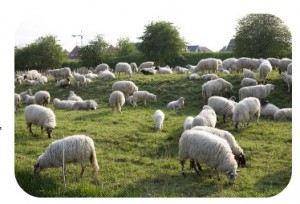 Since its founding in 1973, the outdoor apparel brand Patagonia has strived to make quality goods in an ethical manner. This combination of strong values and superior products has allowed the company to grow into an $800 million brand. But over the years Patagonia has run into a number of roadblocks in their quest to “build the best product” and “cause no unnecessary harm.” For example, in 2010 an animal rights group revealed that the company had been buying goose feathers from a farm that also had been force-feeding the birds in order to make foie gras. In another instance from 2012, Patagonia discovered that some of their employment brokers in Taiwan had been charging migrant workers hefty fees for placement in factory jobs.
Since its founding in 1973, the outdoor apparel brand Patagonia has strived to make quality goods in an ethical manner. This combination of strong values and superior products has allowed the company to grow into an $800 million brand. But over the years Patagonia has run into a number of roadblocks in their quest to “build the best product” and “cause no unnecessary harm.” For example, in 2010 an animal rights group revealed that the company had been buying goose feathers from a farm that also had been force-feeding the birds in order to make foie gras. In another instance from 2012, Patagonia discovered that some of their employment brokers in Taiwan had been charging migrant workers hefty fees for placement in factory jobs.
Each of these revelations required the company to act fast and develop new standards. Patagonia worked with representatives in Taiwan to compensate employees while also cutting ties with the offending brokers and factories. They pursued a similar policy with the down-feather incident, but soon a new scandal appeared that forced the company to refocus. This time, the People for the Ethical Treatment of Animals released a video of the abusive shearing process that sheep had to endure at some of Patagonia’s South American wool suppliers. “Wool was on our radar,” said Cara Chacon, the company’s director of social and environmental responsibility. “We knew that it probably wasn’t perfect, but we had no idea that was going on.”
Patagonia’s ethical woes demonstrate how difficult it can be for companies to scale up while also maintaining their core values. According to MIT researcher Alexis Bateman, firms frequently run into “a huge disconnect—where [marketing teams] are ready to tell the story before operations and supply-chain teams are ready and able to confirm it. It’s possible they know where the farm is, even who the farmer is, but not what’s happening 365 days a year.” Patagonia is currently learning this lesson the hard way. Upon cutting ties with the offending sheep farms, the company also had to cease production on a number of popular wool products, including a new set of long underwear that had spent three years in development. In order to avoid problems like these in the future, Patagonia executives have vowed to take an even more proactive approach when dealing with suppliers.
Questions:
- Why is it difficult for companies to operate ethically and expand at the same time?
- What steps can Patagonia take to become more proactive about potential supply chain problems?
Source: Erica E. Phillips, “Patagonia’s Balancing Act: Chasing Mass-Market Appeal While Doing No Harm,” The Wall Street Journal, August 17, 2016. Photo by Dan Phiffer.
